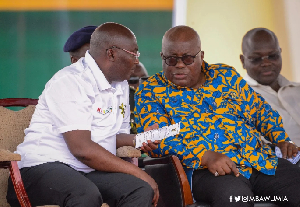An opposition movement in Senegal has called for three days of protests starting on Monday after days of clashes between police and supporters of opposition leader Ousmane Sonko.
At a news conference on Saturday in the capital, Dakar, the Movement for the Defence of Democracy – which includes the leading opposition party Pastef – urged people to “massively descend on the streets”.
At least five people have died in protests that began on Wednesday before Sonko’s court appearance for questioning on accusations of rape.
Sonko, 46, was detained on the way to court and arrested for disturbing public order after hundreds of his supporters clashed with police who were blocking unauthorised protests. His lawyer on Friday said he was now charged with rape and making death threats.
Violent clashes between police and opposition supporters continued in Dakar and elsewhere through Friday, in the worst unrest the country has seen in years.
On Saturday, protesters burned down a military police station in the southern town of Diaobe and ransacked several government buildings, a government official told Reuters.
A 17-year-old boy was killed by gunfire during the clashes, the official said. He was the fifth person to die in protest-related violence.
The clashes in Diaobe came as the 15-nation Economic Community of West African States (ECOWAS) called for “all parties to exercise restraint and remain calm”.
In its statement, the West African bloc also urged the government “to take the necessary measures to ease tensions and guarantee the freedom to demonstrate peacefully”.
The statement came a day after Minister of Interior Antoine Felix Abdoulaye Diome said the protests were “unprecedented and uncommonly provocative acts” organised with the support of “identified occult forces”.
Diome condemned looting and damage to public and private property during the protests, and described the violence in the street as “acts of terrorist nature”.
Some residents, however, said a coronavirus pandemic-linked curfew and general dissatisfaction with President Macky Sall, who took office in 2012 and was re-elected in 2019, was also increasing public anger.
“While Sall has boosted the economy during his mandate, it seems that some of them feel left out; there’s a deepening of the void between the haves and have-nots,” said Al Jazeera’s Nicolas Haque, reporting from Dakar.
“There’s a feeling that this protest is not just about politics – it’s about a social movement,” he added from outside a looted supermarket where local residents stopped by “to get anything they can: a can of food, toilet paper”.
“They’ve really stripped that supermarket bare, even taking the fridges out, and that shows the level of desperation among the people that are protesting and particularly among many Senegalese who feel frustrated after a year of restrictions because of the global pandemic,” Haque said.
Sonko, who came in third in the 2019 polls and has a strong following among young people, is due back in court on Monday to answer the rape charge. He has denied wrongdoing and said accusations are part of a pattern by the authorities of making up criminal charges to block opponents from standing in elections.
The unrest comes amid uncertainty about whether Sall, 59, will seek a third term.
Senegalese presidents are limited to two consecutive terms, but Sall launched a constitutional review in 2016, raising suspicions he intends to run again.
With a population of 16 million people, Senegal is often heralded as a beacon of stability in a volatile region.
Africa News of Sunday, 7 March 2021
Source: aljazeera.com

















